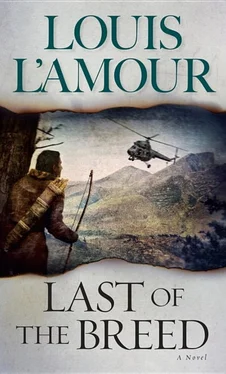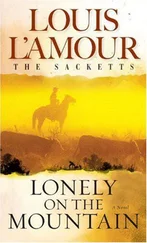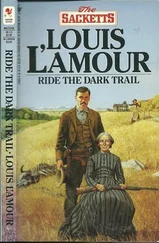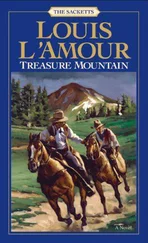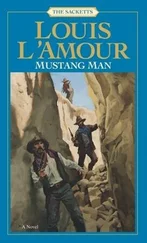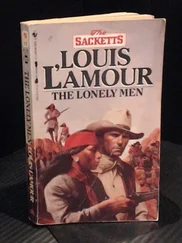Louis L'Amour - Last of the Breed
Здесь есть возможность читать онлайн «Louis L'Amour - Last of the Breed» весь текст электронной книги совершенно бесплатно (целиком полную версию без сокращений). В некоторых случаях можно слушать аудио, скачать через торрент в формате fb2 и присутствует краткое содержание. Город: New York, Год выпуска: 2010, ISBN: 2010, Издательство: Random House Publishing Group, Жанр: Триллер, Историческая проза, Приключения про индейцев, на английском языке. Описание произведения, (предисловие) а так же отзывы посетителей доступны на портале библиотеки ЛибКат.
- Название:Last of the Breed
- Автор:
- Издательство:Random House Publishing Group
- Жанр:
- Год:2010
- Город:New York
- ISBN:978-0-553-89935-1
- Рейтинг книги:3 / 5. Голосов: 1
-
Избранное:Добавить в избранное
- Отзывы:
-
Ваша оценка:
- 60
- 1
- 2
- 3
- 4
- 5
Last of the Breed: краткое содержание, описание и аннотация
Предлагаем к чтению аннотацию, описание, краткое содержание или предисловие (зависит от того, что написал сам автор книги «Last of the Breed»). Если вы не нашли необходимую информацию о книге — напишите в комментариях, мы постараемся отыскать её.
Last of the Breed — читать онлайн бесплатно полную книгу (весь текст) целиком
Ниже представлен текст книги, разбитый по страницам. Система сохранения места последней прочитанной страницы, позволяет с удобством читать онлайн бесплатно книгу «Last of the Breed», без необходимости каждый раз заново искать на чём Вы остановились. Поставьте закладку, и сможете в любой момент перейти на страницу, на которой закончили чтение.
Интервал:
Закладка:
“Talya is right. That way you have no hope. There are few villages and fewer people, except along the seashore. Those you find will be native peoples or government men, those who man the radar installations or the few airfields. As she says, there is no place to hide.”
“You may be right.”
“You still intend to try?”
“I do, and for all the reasons you suggest. If it does not make sense to go that way, they will be inclined to believe I went elsewhere.”
Joe Mack brought fuel to the fire. The wind was picking up, and it was cold. Stepping away from the fire, one felt it at once. A large space could not be heated at all, a small space with ventilation for the carbon monoxide might. He must remember that.
She made a pallet for him near the fire and one for herself across from it. Her father would sleep between the fire and the outer wall, but closer to the fire, with a reindeer hide hung a few inches behind his back to act as a reflector of heat. There could be warmth beside the fire and ice forming on the wall.
They talked, but he was silent, listening. His thoughts were already reaching out to the northeast, toward the Bering Strait and the miles he must cross. When the worst of the cold was over, he would start. He would not wait for spring. With warm weather there would be travel.
He watched her face in the flickering light from the fire. She was beautiful, and she seemed so slender as to be fragile, but she had been strong with Peshkov. She was not afraid.
“You have known nothing but this?”
She looked around. “At first, when I was young, we lived in a town. It was a small town but very nice. I liked it. In the summer we had flowers, and there was a church.”
“You went to the church?”
“It was not safe. If one went to church, one was investigated or called in for a scolding. Sometimes a minister would come to our house and talk to us. He was a Lutheran, a man who lived in the village and worked in a mill. I remember him well.”
“He was a good man,” Baronas said.
“What did you do?” Joe Mack asked Baronas.
“I was a gardener. A farmer in a small way. I raised barley and rhubarb. Rhubarb was very popular as a medicine, as well as food.” He looked up from gazing into the fire. “I learned how to raise it, and I learned a little more about gardening. Some things grow very well here, but the season is short. Often the frost comes early and all is lost.”
“I have never gardened. In the mountains we raised some corn, and sometimes I helped with that.”
The wind was rising.
“There was a sailor I knew once,” Baronas said, “and on such a night he would repeat what was said by the wives of deep-sea fishermen and seafaring men. When the winds moaned and the great seas broke against the rock, they would say, ‘God have pity on the poor sailors on such a night as this!’”
“Amen,” Joe Mack said.
“Ssh!” Natalya lifted a hand. “Someone comes!”
Chapter 16
Their voices were stilled. Wind moaned around the eaves, and the fire crackled. A stick fell, sparks flew up. Joe Mack smelled the good smell of wood smoke and waited, ears straining for a breath of sound.
It came. A crunch of feet on the gravel outside. One man only. Joe Mack relaxed, watching the door, as they all were. The latch lifted. The new arrival stamped his feet to free them of mud before entering; then the door opened.
It was Yakov.
He carried no weapon. He came closer to the fire and took off his mittens, stretching his hands to the fire. “It is cold,” he said, “cold.”
His eyes found Joe Mack. “So? It is not easy, what you did. To come here, to find this place.”
Nobody spoke, all seemed to be waiting for something. Joe Mack looked over at Baronas. “Should I go? If you have something to discuss—?”
“No. You are one of us now. Please stay.”
Yakov looked up at Baronas, rubbing warmth into his hands. “It is no use. He is no longer in Nerchinsk. He was taken from the prison in the night.” He poked a small stick into the fire. “We were too late,” he spoke almost in a whisper, “too late!”
“But he lives?” Baronas asked.
“He lived then,” Yakov said, “and when he was taken from the prison he was able to walk. I do not know where they have taken him. We must wait.”
He glanced at Joe Mack. “They look for you. The job has been given to Alekhin.”
“Alekhin!” Baronas exclaimed. “That is bad, bad!”
Yakov shrugged. “He is only a man.”
Nobody spoke. Outside the wind whispered. Then Natalya asked, “Yakov? Have you eaten?”
He smiled. “Not today. Yesterday, a little.”
“Sit where you are. I shall fix something.”
“Meanwhile there is tea,” Baronas said. Glancing at him, he said, “You must be tired.”
Yakov indicated Joe Mack. “The country is alive because of him. You must be important.”
Joe Mack shrugged, accepting a cup of tea for himself. “I have escaped. They do not like that.”
Yakov thrust another stick into the fire. “You have not escaped. Siberia is a prison. It has walls of ice. Nobody escapes from Siberia.”
“I shall.”
“You are a good man in the forest,” Yakov admitted. “You left no mark of your passing that I could see, but I am not Alekhin.”
“He is good, then?”
“The master. No one is better, no one nearly so good. He is a ghost in the forest, and he can see where nothing is. No one has ever escaped him, no one.”
There was talk between them then, but his few words were not enough. When they spoke slowly and directly to him, he could understand if the words were simple. Much he had learned from the miners’ children returned to him, and Stephan Baronas was a patient teacher. But when they conversed among themselves, he could catch only a word from time to time. Yet it was warm and comfortable, and he did not wish to move.
The comfort was a danger. He must return to the chill of his own camp, where he would not be so much at his ease as here, where the very cold would serve to keep him alert.
Twenty-nine people, they had told him. He had met no more than half a dozen, and there was little moving about. He knew there was discussion of his presence and argument between those who feared the trouble he would attract and those who valued the meat he could contribute.
Joe Mack got to his feet. “I go,” he said, and went out without looking back.
Outside in the dark the wind was raw and cold. The earth was frozen. It was unlikely anyone was watching at this hour and in the cold, but he was wary. When he arrived back at his camp in the rocky hideaway, he built a small fire and prepared his bed. He must make warmer clothing or he would freeze. Yet cold as it was, his health was good, and he lived on the meat he killed. It was a wild life he was living now, but a life to which he was born. He banked his fire and rolled in his bearskin and stared up at the rock overhead. Soon he must be going. He was a danger to them here. A little longer, to learn more of the language, just a little longer.
His eyes had closed, and now they opened again. Was that truly why he was staying on? Or was it that he needed people more than he had believed?
An icy wind whined through the trees, and a branch cracked in the cold. He pulled his bearskin snug about him and tried to hide his head from a trickle of wind from somewhere. He needed to warm the stone before sleeping, to warm it with his fire; this he must do before he slept at night. He reached an arm from the warmth of his bed to push another stick into the coals of his fire. He thought of the rocky cliffs along which he had traveled, of the rivers he must cross and the forests he must travel. And then he thought of Alekhin, the man tracker, of Alekhin who was out there somewhere, out there looking for sign, trying to find him.
Читать дальшеИнтервал:
Закладка:
Похожие книги на «Last of the Breed»
Представляем Вашему вниманию похожие книги на «Last of the Breed» списком для выбора. Мы отобрали схожую по названию и смыслу литературу в надежде предоставить читателям больше вариантов отыскать новые, интересные, ещё непрочитанные произведения.
Обсуждение, отзывы о книге «Last of the Breed» и просто собственные мнения читателей. Оставьте ваши комментарии, напишите, что Вы думаете о произведении, его смысле или главных героях. Укажите что конкретно понравилось, а что нет, и почему Вы так считаете.
